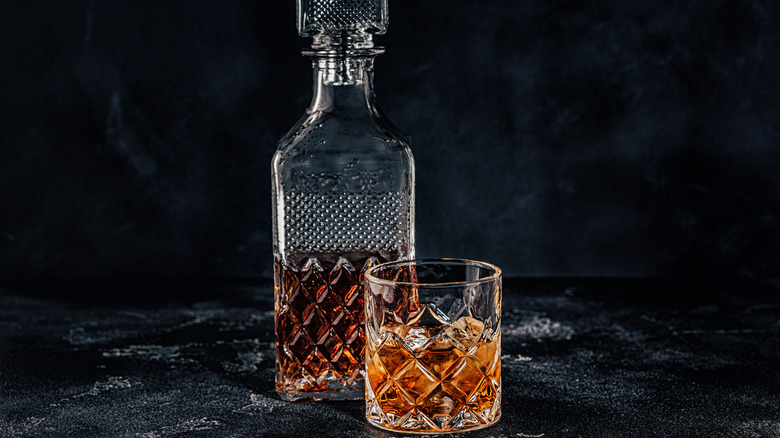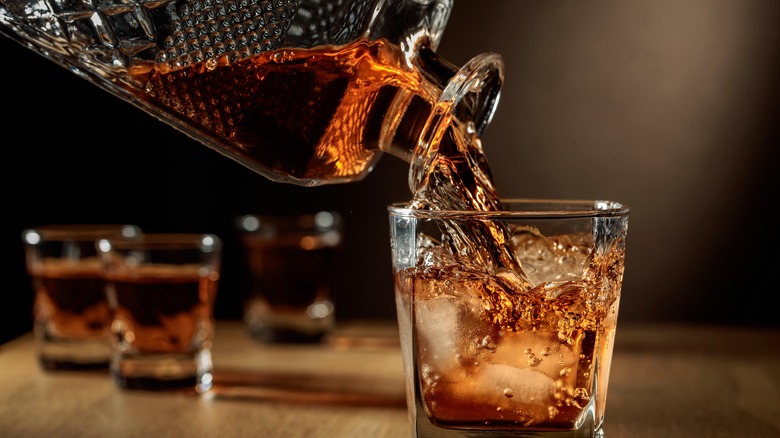Why Whiskey Decanters Are Not As Essential As You Thought
A gorgeous crystal decanter filled with the finest whiskey (but also rye, Scotch, or bourbon) makes for a pretty stunning addition to your bar cart. Sparkling and shining as light reflects off the decorative bottle, it's a marvel for the eyes. The question is, are whiskey decanters just as functional as they are beautiful? Though it might come as a surprise, the reality is that when it comes to storing the spirit, decanters aren't nearly as much of a necessity as you might have imagined.
First thing first, let's unpack the purpose of decanting. Traditionally, decanters were used to remove bits of sediment from wine. However, decanting has become commonplace to promote aeration as well, which can benefit bottles like big and bold aged reds as oxygen exposure releases nuanced aromas and softens harsh tannins. Of course, there's also a visual appeal to decanting alcohol into a fabulous looking vessel, which is precisely the case for whiskey decanters.
Unlike wine, whiskey has far fewer tannins and a much higher alcohol content. As a result, its profile won't change regardless of how long it is kept, nor will it oxidize as quickly when exposed to air. Given these qualities, the process of decanting ultimately proves to be unnecessary as pouring whiskey into a separate vessel — especially one that's sealed with an airtight stopper — won't improve (or even change) flavors or mouthfeel. This means that whiskey decanters really only have an aesthetic benefit.
Consider the whiskey decanter a dazzling homage to tradition
Despite that whiskey decanters serve a decorative purpose in the present day, this wasn't always the case. Before being available in bottles, whiskey was sold in barrels. Due to the cumbersome nature of the barrels, small and sturdy decanters would need to be taken to them and filled for easier transportation and serving of the spirit. Of course, not any bottle could be used as decanters needed to be clear in order to showcase the color and quality of the whiskey. While the spirit has long since been bottled on-site, effectively eliminating the necessity of decanters, they continue to be a nice nod to tradition.
Redundant as it may seem to pour whiskey from one conveniently sized vessel into another, decanting actually does have its benefits — just not in a gustatory sense. For example, decanters come in handy during blind tastings since the bottles are label-free. Likewise, their smaller size can give the impression of a fuller liquor bottle. Decanters also make it easier to experiment should you want to infuse whiskey.
Remember that if you plan on using a whiskey decanter, always opt for lead-free crystal to avoid the risk of toxins leaching into the spirit. For the best tasting results, it's also wise to store the decanter away from direct heat and sunlight. Bearing these tips in mind, enjoying whiskey can be a pleasure for all the senses.

